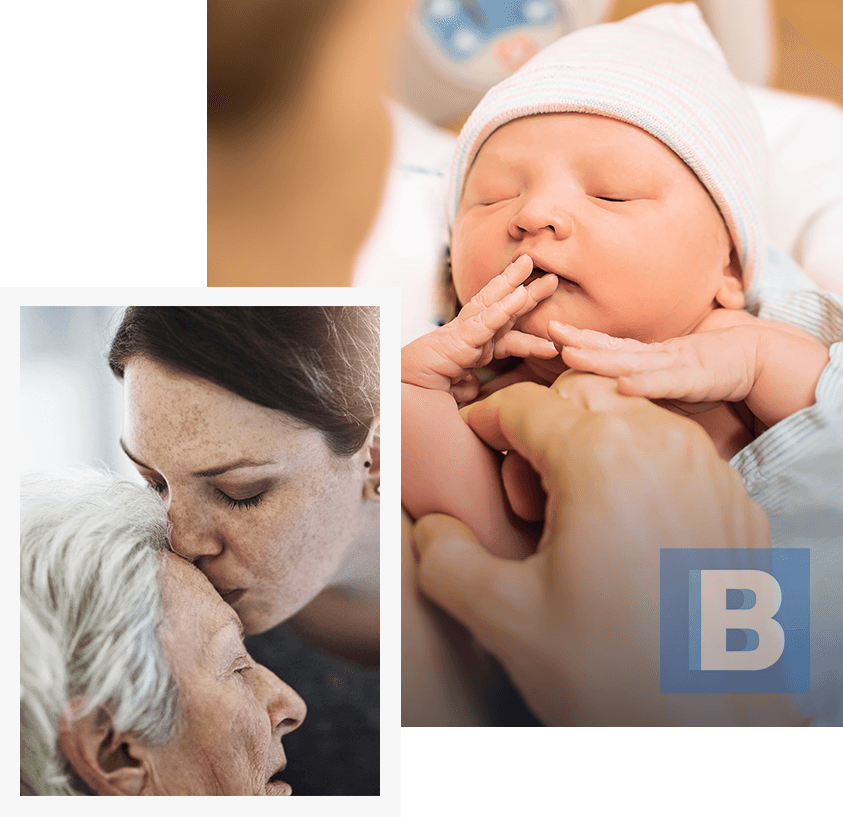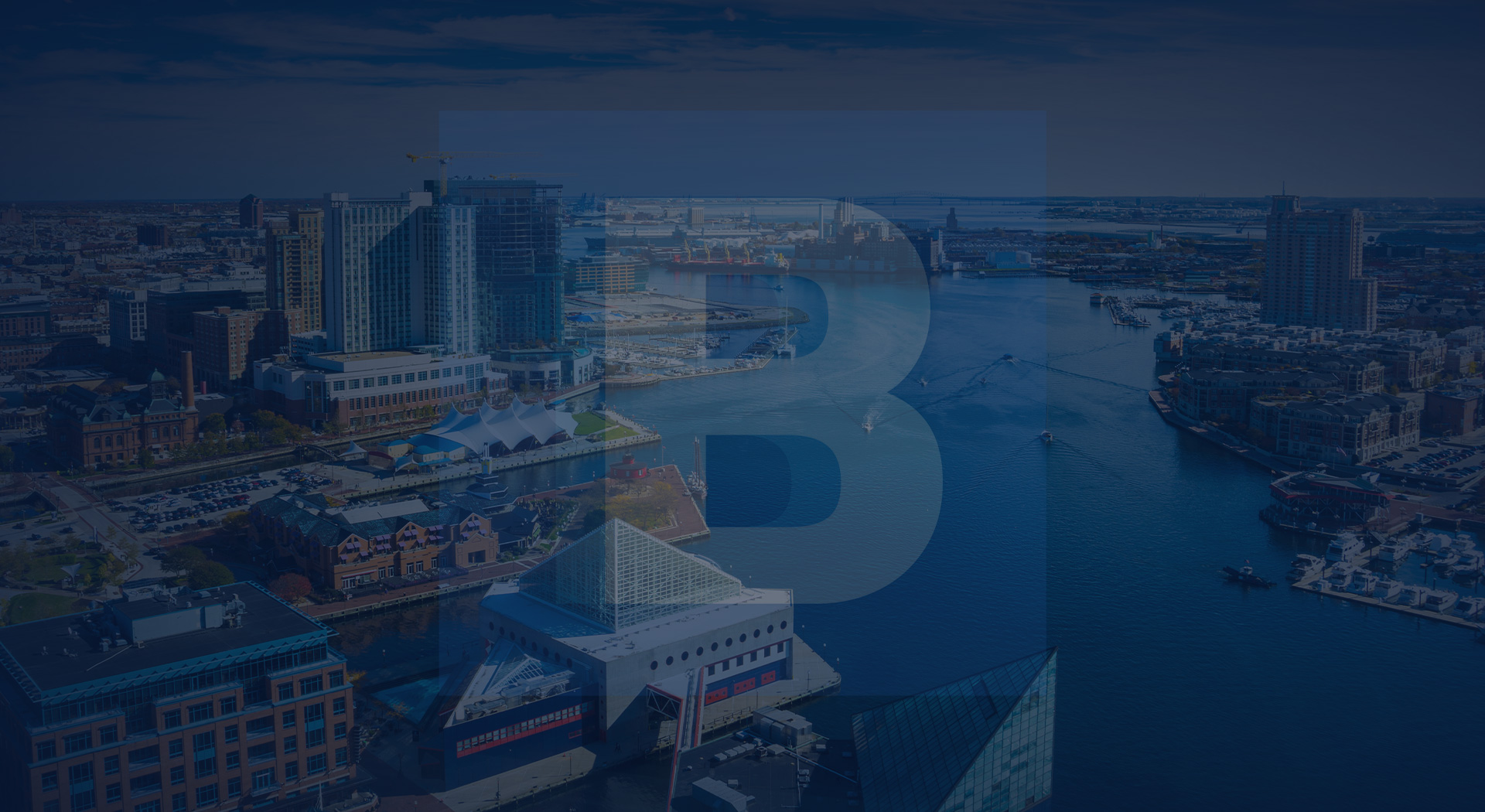

Hypoxic Anoxic

Baltimore Hypoxic & Anoxic Brain Injuries Attorney
Advocating for Baltimore Residents with Acquired Brain Injuries
Hypoxic and anoxic brain injuries are types of non-traumatic brain injuries that result from a lack of oxygen. Similar to negligence-based traumatic brain injuries (TBI), you have the right to seek compensation if your hypoxic/anoxic brain injury was directly caused by another’s negligence.
The Baltimore hypoxic & anoxic brain injury attorneys at Brown & Barron have made it our mission to restore lives by restoring justice. We stand ready to help you in your hypoxic/anoxic brain injury case, providing you with the following:
- Over 137 years of combined experience
- Honest, compassionate legal counsel
- Aggressive advocacy in trial and negotiations
- Results-oriented representation tailored to your specific needs
We understand the devastating impact a hypoxic/anoxic brain injury can have. That’s why we will fight without rest to recover your full and fair compensation, as well as closure about what happened. To date, our appellate advocates and trial lawyers have secured millions of dollars in compensation for our clients in Baltimore.
Get in touch with a hypoxic & anoxic lawyer serving Baltimore, (410) 698-1717 for a free case evaluation.
What Is a Hypoxic/Anoxic Brain Injury?
As mentioned, hypoxic and anoxic brain injuries are non-traumatic brain injuries, meaning they damage the brain through internal factors. This distinguishes them from TBIs in which damage to the brain occurs because of an external factor, like a blow to the head. Still, the Brain Injury Association of America classifies all these injuries under the umbrella of acquired brain injuries, which simply means they are not congenital or hereditary.
For both hypoxic and anoxic brain injuries, the internal factor is a lack of oxygen:
- Cerebral hypoxia is when the brain’s supply of oxygen is partially depleted to a level that makes normal brain function impossible
- Cerebral anoxia is when the brain’s supply of oxygen experiences a complete interruption
Oxygen deprivation is very serious. The brain needs oxygen to function, and when this supply is interrupted, consciousness is lost in as little as 15 seconds. Damage to the brain is soon to follow. In cases of cerebral anoxia, an anoxic brain injury usually occurs after about four minutes of oxygen deprivation; on the other hand, cerebral hypoxia leads to the gradual death of or damage to brain cells, or a hypoxic brain injury.
Common Signs and Symptoms
Many hypoxic and anoxic brain injury symptoms are similar to those of a traumatic brain injury, such as:
- Headache
- Confusion
- Disorientation
- Trouble speaking
- Vision problems
- Memory loss
- Mood changes
- Poor coordination
- Seizures
Long-Term Effects of Hypoxic & Anoxic Brain Injuries
Hypoxic and anoxic brain injuries are serious injuries that can cause permanent brain damage. Long-term complications include:
- Permanent disability
- Short-term memory loss
- Speech issues
- Coma
- No longer able to think critically, assess information, or use reasoning
- Being in a vegetative state
These complications can last for the rest of your or your loved one’s life. If the injury was caused by someone else’s actions, they should be held accountable. Our attorneys will fight for you to receive the maximum amount of compensation for your or your loved one’s injuries. Not only do we want you to receive compensation, but we also want to ensure the person who made the mistake causing the injury does not do it again.
What Causes Hypoxic & Anoxic Brain Injuries?
Common causes of hypoxic and anoxic brain injuries include:
- Stroke
- Heart attack
- Cardiac arrhythmia
- Toxic exposure
- Drug overdose
- Electrocution
- Near drowning
- Choking
- Strangulation
- Severe asthma attacks
- Anesthesia complications
Sometimes, these causes are no one’s fault; other times, negligence is to blame. For example, if an anesthesiologist’s negligence led to a complication with anesthesia and a hypoxic/anoxic brain injury, the hospital may be held accountable.
At Brown & Barron, we have also seen cases in which medical professionals failed to identify the warning signs of a heart attack or stroke, allowing these events to occur. Should hypoxic/anoxic injuries result, medical professionals and their employers—hospitals, nursing homes, clinics, etc.—can be held liable.
Your Rights After a Hypoxic/Anoxic Brain Injury
If you suspect that medical negligence or nursing home abuse/neglect led to your hypoxic/anoxic brain injury, you may have the right to sue the party responsible for the full amount of your damages. This may include pain and suffering, lost earnings, medical bills, and more. Our attorney team at Brown & Barron will work to uncover the true cause of your injury, then fight without rest to get you the compensation you deserve.
Call our firm today for a free consultation. Our team is available 24/7 to take your call and discuss your legal options.
Contact Brown & Barron online today to schedule a free case review with a hypoxic & anoxic lawyer serving Baltimore.
Damages You Could Recover in a Hypoxic & Anoxic Brain Injury Claim
If you file a claim against the liable party, you must prove their negligence caused the injury. If this can be proven, you could potentially recover damages for the losses you incurred. Recoverable damages in a hypoxic and anoxic brain injury claim include:
- Medical bills: Emergency room visits, hospital stays, ongoing doctor’s appointments, medications, and any medical supplies you had to purchase out of pocket.
- Future medical bills: You may still need medical treatment after your claim has been settled. An attorney from our firm will help you calculate the value of your future medical bills.
- Rehabilitative care: Physical therapy, occupational therapy, or speech therapy services you may need.
- Assistive equipment: Any assistive equipment you will need, such as a wheelchair, ramp to your home, specialized vehicle, or communication device.
- Lost income: Any income or benefits you lost could be recovered.
- Diminished earning capacity: If you are unable to return to work in the same capacity, you could recover those losses. In the case you are injured severely enough to where you cannot return to work, you can recover monetary compensation for lost future earnings and benefits.
- Pain and suffering: Any physical pain, anguish, or discomfort you felt immediately after the incident or ongoing.
- Emotional distress: If you suffer from any mental health issues such as anxiety, depression, or post-traumatic stress disorder because of the incident or your injuries.
- Loss of enjoyment: If you are unable to enjoy hobbies or activities you used to enjoy, you can include loss of enjoyment damages in your claim.
- Loss of consortium: If your loved one passed away or is severely injured, you can include loss of consortium. Loss of consortium is the deprivation of a relationship.
How do I Prove Negligence?
The attorneys at our firm can help you gather the evidence needed to prove negligence. There are four key elements to proving someone was negligent. They include:
- Duty of care: It must be proven the defendant owed the plaintiff attention, watchfulness, caution, and prudence that a reasonable person in the same situation would display.
- Breach of duty: When the defendant’s conduct fails to meet the standard duty of care.
- Causation: It must be proven the defendant’s breach of their standard duty of care caused the injury to occur.
- Damages: The court will order compensation to be paid by the defendant to the plaintiff if it can be proven they breached the standard duty of care.
The Baltimore hypoxic and anoxic injuries attorneys at Brown & Barron have handled negotiations in these types of cases. We will work tirelessly to come to a fair settlement agreement. If a settlement amount cannot be reached, we will litigate for you in court.


Our Difference
Why Choose Brown & Barron, LLC?
-
An Unwavering Commitment to What's RightBrown and Barron is a law firm that fights for the most vulnerable members of society to achieve a true sense of closure after a devasting event. We are passionate about the people we work with and the cases we argue and will do whatever it takes to not only restore your justice but also restore your life.
-
A History of Being Responsive & Accessible
Our firm culture ensures that all clients feel like family, as evidenced by more than 150 five-star Google reviews. We ensure from the beginning of your case until the very end that your voice is not only heard but echoed until you obtain the justice you deserve. We work with you throughout the process to make sure that the results we arrive at make sense for you and your family.
-
A Team of Dedicated AdvocatesOur legal team not only has over 137 combined years of trial experience, but we pride ourselves on being the top attorneys in our field. With a specialization in complex cases, we have attorneys who have not only graduated from the most prestigious universities, but who have also proved to be recognized with the profession's most distinguished honors.
-
A Proven Track Record of Success
Brown & Barron has a history of results-oriented representation and we have obtained more than $90 million for our clients since 2017. Our team has a proven record of restoring lives and restoring justice.



Hear from Our Clients
Over 150 5-Star Reviews from Our Past Clients
-
"Brown & Barron, LLC has to be one of the best law firms in the state of Maryland"
Brown & Barron, LLC has to be one of the best law firms in the state of Maryland, possibly the entire country. The quality of their service is second to none. They go above and beyond to serve their clients and get the job done.
- Eric B. -
"Exceeded All Expectations"
The best professional experience I have ever been a part of. I trusted them the entire way, and they exceeded all expectations.
- Darius L. -
"I would recommend Brown & Barron to anyone who needs a lawyer for a medical malpractice case."
Brown & Barron provided efficient, straight-up, and straightforward services in my medical malpractice case. They answered all my questions and kept me informed every step of the way.
- D.D. -
"Working with this law firm gave me confidence and comfort during an emotional and difficult time."
After a two-year process, my case is resolved. I would like to commend and highly recommend Mr. Chris Casciano for his diligence, attention to detail, and support for myself and my family.
- A.L.